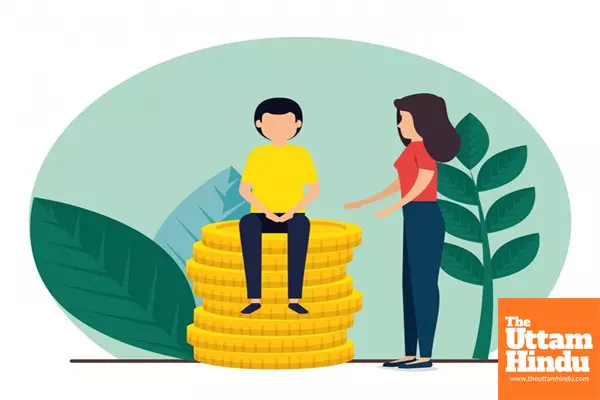
Can a Daughter Inherit Her Father’s Pension? The Shocking Answer Revealed!

New Delhi(The Uttam Hindu):In India, there is a system called "Family Pension" which provides financial support to the family members of deceased government employees. This pension is governed under the Central Civil Services (Pension) Rules, 2021, and is meant to help family members avoid financial distress after the death of a government employee. It is typically provided to those family members who were nominated by the employee during their lifetime, ensuring that the family is financially supported in case of an unexpected event.
According to Rule 54 of the Central Civil Services (Pension) Rules, 2021, a pension is granted to the family members of a government employee who passes away. This pension is given to the employee's spouse, children, dependent siblings, and parents. However, many people often wonder, "Can a daughter receive the pension meant for the wife?" The answer to this question is clearly addressed in the Central Civil Services (Pension) Rules, 2021. Let’s explore the details further.
Rules for a Daughter Receiving the Pension
Under the Central Civil Services (Pension) Rules, 2021, if a government employee passes away, his daughter can receive the pension in place of the wife, but there are certain conditions:
>Married Daughters Are Not Eligible
Generally, family pensions are only granted to unmarried daughters. Once a daughter gets married, she is no longer eligible for the family pension. However, if the daughter is physically or mentally disabled, she can still receive the pension, regardless of her marital status.
>Widowed or Divorced Daughters Have the Right to Pension
If the daughter is widowed or divorced, she is eligible for the pension for life. In such cases, the pension continues as long as she does not become financially dependent on someone else.
>Unmarried Daughters Are Eligible
An unmarried daughter is eligible for the pension until she gets married or becomes employed. If the daughter secures a job, she will no longer be entitled to the family pension. However, if she is physically disabled or financially dependent for any other reason, she will continue to receive the pension.
>Priority for the Eldest Daughter
If there are multiple daughters in the family, the eldest daughter is given priority for receiving the pension. This applies in cases where the wife of the deceased employee is no longer alive, and the daughter has been nominated as the family pension recipient.
How Is the Pension Distributed?
As per the Central Civil Services (Pension) Rules, the pension is first granted to the surviving spouse of the deceased government employee. After that, if there are children who are eligible, the eldest daughter or other eligible children receive the pension. If any child is disabled or incapable, they are entitled to continue receiving the pension.
Special Provisions for Widows and Divorced Daughters
Widowed or divorced daughters are entitled to a lifelong pension. They will continue to receive the pension until they remarry. The government has made this provision to ensure that such daughters receive financial assistance throughout their lives.
Pension for Disabled Daughters
Under the Central Civil Services (Pension) Rules, disabled daughters are fully eligible for the pension, regardless of whether they are married or not. If the daughter is physically disabled, the pension will continue for her entire lifetime.
The Central Civil Services (Pension) Rules, 2021 ensure that, besides the wife, unmarried, widowed, divorced, and disabled daughters are also eligible for family pension under certain circumstances. It is important to understand the pension rules and follow the correct procedures to ensure that family members are not left financially vulnerable and can benefit from government schemes. If you need more information related to family pensions, you can contact your local pension department or visit the official government website for detailed guidelines.

